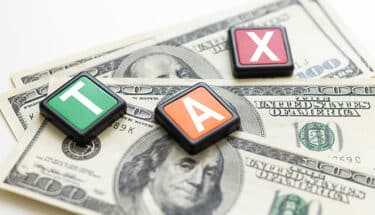Good morning! My name is Christopher Emigholz, and I am the Vice President of Government Affairs for the New Jersey Business & Industry Association (NJBIA) covering economic development, tax and budget issues. On behalf of our member companies that provide 1 million jobs in our state and make NJBIA the largest statewide business association in the nation, thank you for the opportunity to speak with you regarding A-4175 – the New Jersey COVID-19 Emergency Bond Act. NJBIA believes that borrowing can be a useful and important fiscal tool in a crisis like we are in, but we have concerns that it be done the right way to protect taxpayers now and into the future.
Positives of Borrowing:
Borrowing can be a useful and even necessary tool to address some of the fiscal uncertainties in a crisis such as the one we are in now. Borrowing may be appropriate because it can allow for:
- Spreading the costs of a crisis over many years instead of having it absorbed by one or two years of extreme pain
- It can be reasonable to expect future taxpayers to help cover the costs of an extreme once-in-a-generation event like this.
- Maintaining cash flow
- With uneven revenues due to the pandemic’s impact on the economy and the unique adjustments to the state fiscal year, short-term borrowing can be helpful to smooth out revenue collection.
- Avoiding immediate and painful tax increases to balance the State Budget when New Jersey already has one of the highest tax burdens in the nation and the business community was just locked down for months
- The natural growth of the economy after this crisis passes may be enough to cover some of the future costs of borrowing, while spending cuts alone may not be enough to immediately balance the State Budget.
- Preventing a further contraction of government programs that may do more harm to an already devastated economy
- Creating additional unemployment and de-investing in the economy may slow an economic recovery.
Concerns of Borrowing:
Borrowing definitely has a place in government fiscal policy, but NJBIA and taxpayers have many concerns about its improper and/or excessive use. NJBIA’s recommendations for responsible borrowing to ensure a more rapid economic recovery from this crisis include:
- Waiting to borrow anything beyond short-term notes for cash flow and the Federal Reserve’s Municipal Liquidity Facility until we better know the full scope of our State’s needs
- It is premature to issue $5 billion of General Obligation bonds with a 35-year maturity until we fully know how much budget support may come from the federal government and what the annual tax revenues coming July 15 look like.
- Limiting length of borrowing
- It may be more appropriate to rely on the Federal Reserve’s Municipal Liquidity Facility program’s shorter-term bonds instead of the 35-year bonds contemplated in A-4175.
- Limiting amount borrowed
- A $5 billion bond like what is considered in A-4175 will cost New Jersey taxpayers at least many hundreds of millions of dollars in additional debt service costs for the next 35 years. New Jersey already is already one of the most indebted states in the nation, and this will just mean more of our budget will go towards paying debt instead of programs that benefit our residents.
- Pursuing real spending cuts and structural reforms before relying on more borrowing than necessary
- Borrowing should never be a first option but pursued only after serious and permanent spending cuts are found that include structural reforms. This should include health and pension benefit reforms such as the NJEA-supported health savings bill (S-2273) that has already passed the State Senate.
- It also appears possible to find even more significant savings when the FY18 appropriation level equaled only $34.7 billion, yet even after the just-announced cuts to the adjusted FY20 appropriation, it has increased $4.8 billion (14%) to $39.5 billion just two and a half years later.
- Limiting borrowing for operating expenses to only short-term borrowing and only pursue long-term bonding for capital costs
- Investing in the economy through capital programs that may require long-term bonding may be a great stimulus after a down economy, but bonding for operational expenses is bad fiscal policy and probably illegal.
- Developing a back-up plan if this borrowing plan is ruled unconstitutional so immediate tax increases are not necessary because of a court decision
- NJBIA understands that there is a constitutional exception to bonding in an emergency without voter approval, but does that include bonding for operating expenses that the courts have warned about in the past? That uncertainty may mean that a back-up plan is prudent if a court strikes down this borrowing. A worst-case scenario would be to get backed into painful tax increases if no other options remained after borrowing became impossible and it became too late for other options.
- Ensuring consistent debt service payments and avoiding any balloon payments
- It is irresponsible fiscal policy to delay increased debt service payments and tough budget decisions today by loading up the debt service with balloon payments on future taxpayers long after current policymakers may be out of office.
- Focusing on a safe re-opening and recovery plan for New Jersey businesses that generate the tax revenue so less borrowing is needed
- State revenues will continue to decline as long as businesses are closed by state government, so businesses need clear re-opening metrics and guidelines to allow them to generate the tax revenues we so desperately need to avoid unnecessary cuts and borrowing. This borrowing is not for COVID-19 related expenditures but to fill a revenue hole – a hole that would not be so deep if were not one of the last states to have an orderly re-opening plan.
Thank you for considering our perspective on the New Jersey COVID-19 Emergency Bond Act, and we look forward to continuing to work with you all to help all New Jersey businesses and taxpayers through this fiscal crisis caused by the COVID-19 pandemic.






